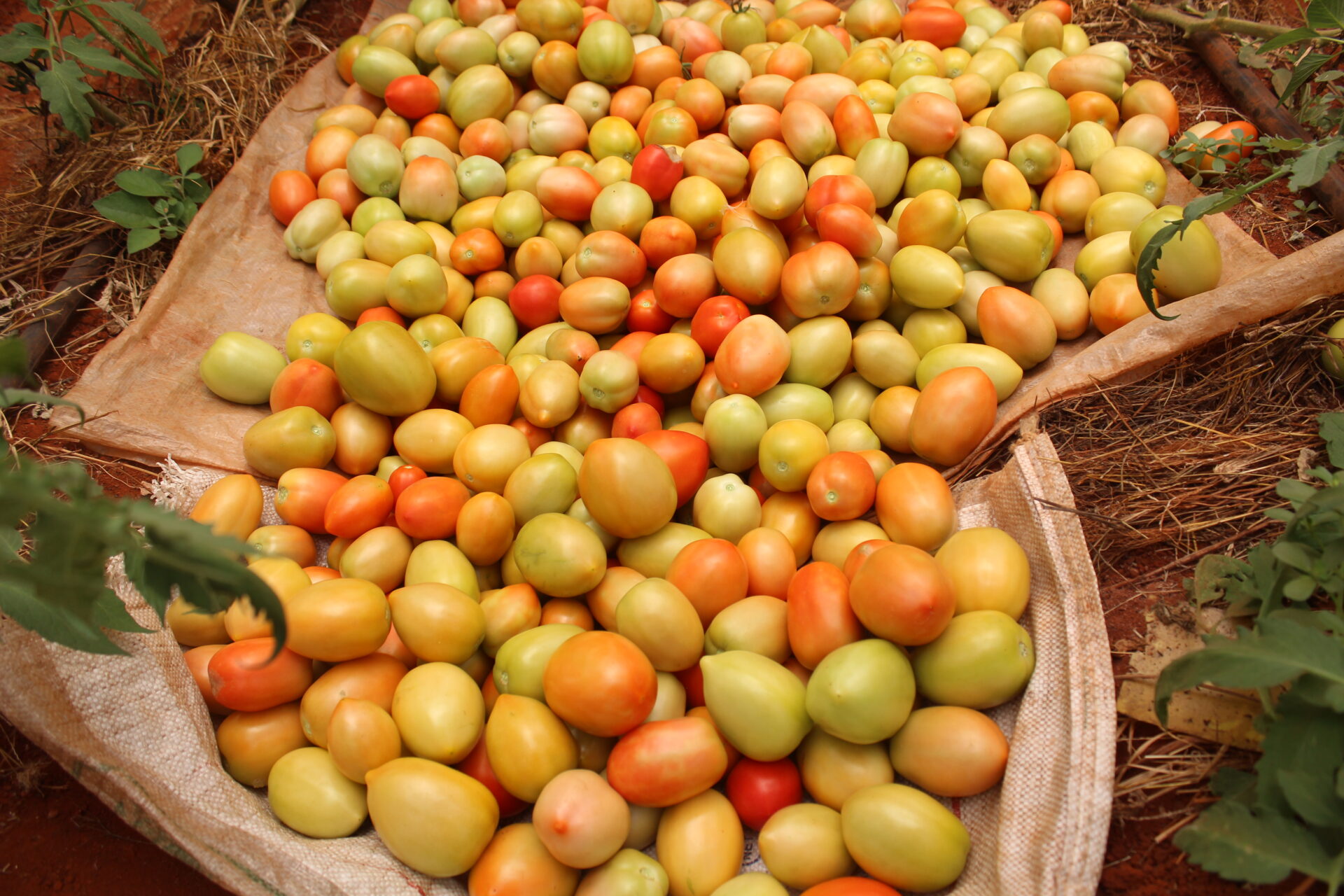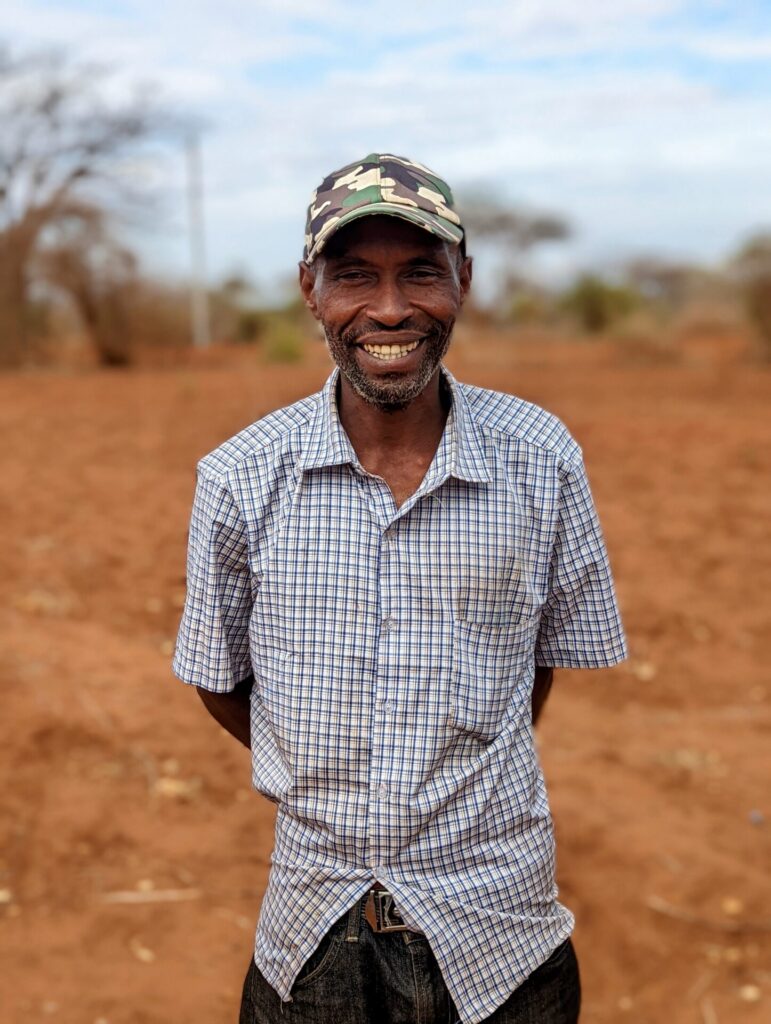Evans Mwadembe, a small-scale farmer in rural Southeastern Kenya, agrees that it is high time rich nations compensate countries that suffer the most from climate change.


World leaders have completed the COP 27 conference in Sharm el-Sheikh in Egypt to actualize a set of climate change-related agreements between participating parties from all over the globe. Government representatives, the private sector, and thousands of participants spent two weeks trying to broker deals, holding key negotiations, and attending press conferences. It must have been an exhausting and daunting task to walk into each conference room and attempt to get stakeholders to listen to your voice of reason. Question is, was it a success?
The COP 27 was a continuation of last year’s meeting in Glasgow where countries had set ambitious goals to confront the climate crisis, and now was the time to follow through on them. The key discussions at the conference exposed the reality of climate change effects, and in a historic agreement, richer nations agreed to set aside a fund that would compensate economically-disadvantaged nations dealing with the effects of climate change through a loss and damage fund. Yet, there is no clear agreement on how the funds will be disbursed. In his speech at the conference, Kenyan president William Ruto implored western nations to honor their spending commitment for mitigation, adaptation and mobilization of funds to those affected especially in Africa.
Evans Mwadembe, a small-scale farmer in rural Southeastern Kenya, agrees that it is high time rich nations compensate countries that suffer the most from climate change. “Rich nations are responsible for a big percentage of all excess emissions, so it is no question that they should be made to pay.,” he says.

He had incurred huge losses a year back after planting maize on his 5-hectare farm hoping it would rain. Weeks later, there was no rainfall and the sprouting maize plants, which were barely a meter high, dried up, forcing him to uproot it and feed it to his cattle instead. “Everything here looks gray. All the water catchments in the mountains have dried up and so have the water pans that we depend on for the surface runoffs for our cattle to drink. As farmers, we have been hit hard by the effects of climate change. When I think of what we are facing, it takes me back to the 1980s when we had reliable rainfall, and the harvest was plentiful,” he says.
For Evans, his hope from the conference is that we will collectively focus our minds on finding climate and sustainability solutions that work for all nations. He is open to the idea of rich nations agreeing to channel some funds to countries facing climate disaster related impacts. “It would also make sense if the funds were channeled through local organizations, like Wildlife Works, because they already know the challenges we are facing,” he adds.
There has been much debate about the exclusion of forest communities in discussing climate solutions. Evans feels there is room for improvement when it comes to African representation. “We may discuss efforts and solutions, but the affected person on the ground does not know what is going on, yet he is the one who can give a correct interpretation of matters on the ground,” he says. “But when you get someone living in the city to go and represent us, they will not have the real picture of issues on the ground,” he adds.
“I would advise the leaders attending such conferences to take some time and visit these nations hardest hit by the climate crisis. Then they will be able to gauge if the solutions discussed were practical or not. The leaders should bring themselves to where the problems are. That’s the least they can do,”
Despite constant disappointments which have disrupted his livelihood, Evans is still hopeful. “You know one thing as a farmer is that we are ready to take any risks. We have already plowed our farms, done the early planting by digging up holes and some of us have even put seeds inside. If the rains don’t come, we will wait for the next season,” he says.
A few weeks ago, Kenya experienced rain in different parts of the country. It is now planting season and even though it has provided some relief to people like Evans, we are not sure for how long the rains will continue. In the face of uncertainty, it takes great courage for farmers to plant the seeds for new harvests. The Kenyan Vice President recently launched a National Steering Committee on drought response, urging Kenyans to channel their contributions through the committee to assist victims of drought.
As global bilateral negotiations continue year after year on how to get urgently needed resources to Global South communities, Wildlife Works will continue to break through financial and political barriers with local communities to alleviate the drought and future climate related disasters now. Recently, we partnered with Elephant Cooperation, Local Carbon Committees, ranches, and conservancies within our carbon project to provide meals to schools in the project area hardest hit by drought. With continued revenue earned through carbon credit sales, we also work with communities to increase their capacity for resources and information access needed to build resilience, learn about sustainable farming techniques, and better protect their forests.
While we are doing so, world leaders must have an ounce of the rural farmer’s courage, and take actual steps to invest in climate resilience for those in Africa.
